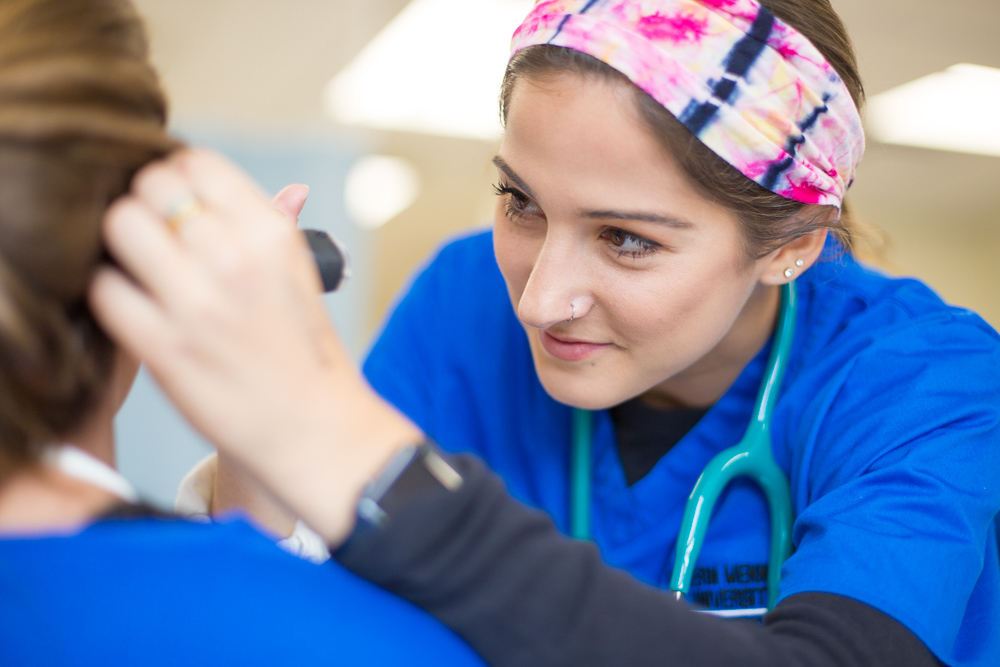The Eastern Mennonite University nursing program’s signature “Sacred Covenant” is getting an update – by its originator and with the help of those who live it.
Since 1994, the ethics model has guided and inspired faculty, students and alumni of Eastern Mennonite University’s nursing program. In coming months, Professor Ann Hershberger, who developed the model with the input of other faculty, will lead research with the goal of updating the signature document.

EMU’s Sacred Covenant Model outlines nursing approaches to caring through empowerment, partnership, presence, justice, service, agape love, advocacy, reconciliation and grace. It also articulates that nurses, in their work with persons, families, communities and systems, fill roles including collaborator, leader, manager, researcher practitioner and teacher.
“It is clear that rooting students in this unique, values-based approach has impacted the lives of our students and those they serve,” Hershberger said. “Updating these concepts to reflect our current social and cultural context will boost its continued integral relevance.”
To gain insight into modernizing the document’s language, Hershberger will survey and interview program graduates and conduct a literature review to assess the use of similar concepts across the field of nursing.
Hershberger will also expand the covenant’s theological grounding in collaboration with Eastern Mennonite Seminary dean Nancy Heisey, whose writings on Micah 6:8 heavily influenced the original.

In the 1990s, Hershberger and other nursing faculty members began writing essays exploring the unique approaches that Anabaptists bring to nursing. Later, then professor and department chair Arlene Wiens led the gathering of the approaches under the “Sacred Covenant” concept based on writings by Catholic University Professor Mary Elizabeth O’Brien, including her book A Sacred Covenant: The Spiritual Ministry of Nursing (Jones & Bartlett Learning, 2008).
“Because of our faith tradition, we view an individual’s story as holy ground and, as nurses, we intersect with them in sacred space,” Hershberger said. “We are privileged to be allowed into the most intimate points of people’s lives when they are at their most vulnerable. We view the nurse-patient relationship as sacred because of the intimacy and spirituality of that connection.”
Students in the undergraduate and master’s nursing programs explore the covenant and reflect on their clinical experiences through its lens. While undergraduate students who later return to EMU for master’s level studies already resonate with the covenant, masters- and doctoral-level students exposed to it for the first time often find it significant and meaningful, Hershberger said.
“‘This is why I went into nursing. I thought this didn’t exist anymore,’” she has heard them say. “The articulation of nursing as both faithful vocation and profession is something that they longed for.”
The nursing program offers traditional, transfer and accelerated undergraduate and second-degree programs as well as MS in nursing and DNP programs. All programs are accredited by the Commission on Collegiate Nursing Education.
